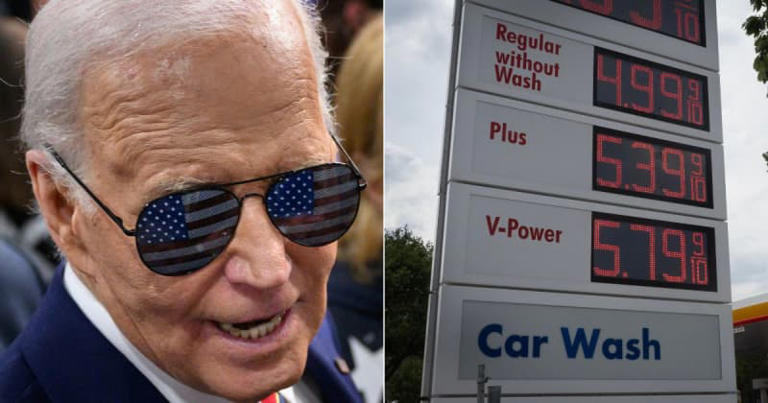The recent announcement by the Biden administration to release one million barrels of gasoline from the Northeast Gasoline Supply Reserve is emblematic of the administration’s efforts to address the pressing economic concerns gripping American households. With President Joe Biden facing stagnant poll numbers amid escalating prices at the grocery and gas pumps, this move is perceived as a strategic maneuver aimed at alleviating some of the economic pressures facing voters, particularly in the Northeast region.
Established in 2014 under former President Barack Obama, the Northeast Gasoline Supply Reserve was conceived as a precautionary measure to mitigate potential supply disruptions following significant events such as natural disasters. The memories of widespread gas shortages and heated conflicts at stations in the aftermath of Hurricane Sandy serve as a poignant reminder of the critical role such reserves play in times of crisis.
While the reserve has never been utilized before, the Biden administration’s decision to tap into it reflects a willingness to explore unconventional measures to tackle the current economic challenges. By releasing one million barrels of gasoline into the market, the administration aims to increase supplies and drive down costs for consumers, particularly as demand surges around the Fourth of July holiday.
However, the move has sparked debate and criticism from various quarters. Some view it as akin to cashing out emergency savings for short-term gains, expressing concerns about the long-term implications of depleting strategic reserves. Additionally, former President Donald Trump has characterized the decision as a political ploy aimed at boosting Biden’s electoral prospects, suggesting that it reflects an inability to address underlying issues such as energy policy and domestic production.
Indeed, the release of gasoline reserves represents just one component of Biden’s broader strategy to address energy costs and inflation. The administration has also embarked on efforts to bolster clean energy initiatives and invest in infrastructure, signaling a multifaceted approach to tackling economic challenges.
As the Biden administration navigates the delicate balance between short-term relief and long-term sustainability, the decision to tap into strategic reserves underscores the complexities of addressing economic issues in an increasingly volatile global landscape. While it may provide temporary respite for consumers grappling with high prices, the broader implications of such measures remain subject to debate and scrutiny. Ultimately, the efficacy of these efforts in shaping the economic narrative and influencing public sentiment will be closely watched in the coming months.
